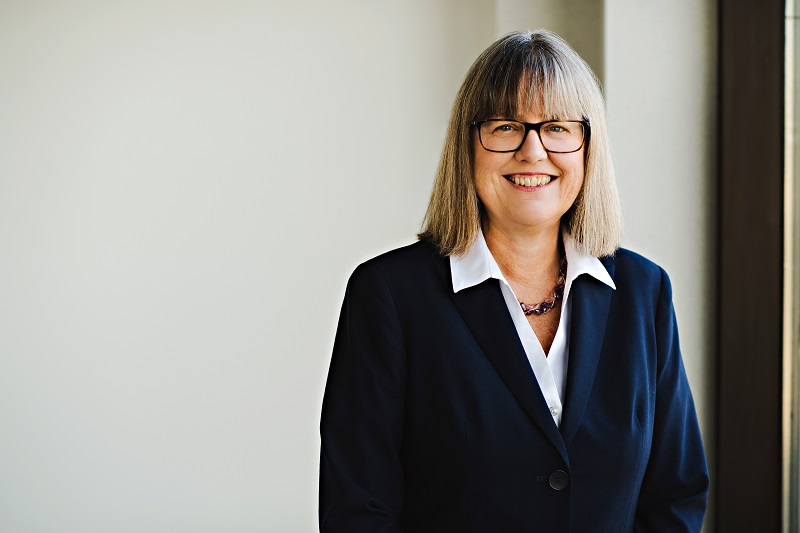Reines Lecture: Generating High Intensity, Ultrashort Optical Pulses
With the invention of lasers, the intensity of a light wave was increased by orders of magnitude over what had been achieved with a light bulb or sunlight. This much higher intensity led to new phenomena being observed, such as violet light coming out when red light went into the material. After Gérard Mourou and I developed chirped pulse amplification, also known as CPA, the intensity again increased by more than a factor of 1,000 and it once again made new types of interactions possible between light and matter. We developed a laser that could deliver short pulses of light that knocked the electrons off their atoms. This new understanding of laser-matter interactions, led to the development of new machining techniques that are used in laser eye surgery or micromachining of glass used in cell phones.
Donna Strickland is a professor in the Department of Physics and Astronomy at the University of Waterloo and is one of the recipients of the Nobel Prize in Physics 2018 for developing chirped pulse amplification with Gérard Mourou, her Ph.D. supervisor at the time. They published their Nobel-winning research in 1985 when Strickland was a Ph.D. student at the University of Rochester. Together they paved the way towards the most intense laser pulses ever created. Their research is used today in industry and medicine — including lasik eye surgery, the machining of small glass parts for use in cell phones, and compact laser accelerators.
About the Reines Lecture Series
The Reines Lecture Series honors Frederick Reines, UCI’s Founding Dean of Physical Sciences and co-recipient of the 1995 Nobel Prize for discovering the neutrino. This year's Reines Lecture is hosted by Toshiki Tajima, Norman Rostoker Chair Professor of UCI Physics and Astronomy.
Sponsored by Department of Physics and Astronomy, the School of Physical Sciences, the Provost, the Vice Chancellor for Research, and the Frederick Reines Fund.

